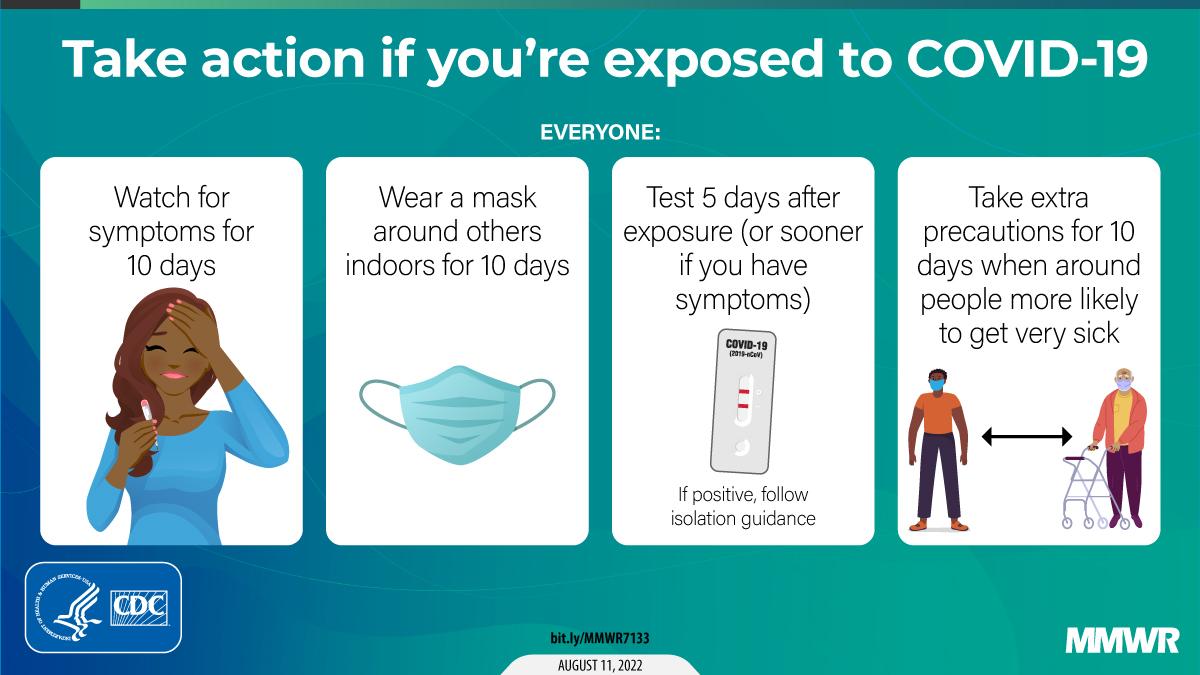CDC Eases COVID-19 Social Distancing Guidance

THURSDAY, Aug. 11, 2022 (HealthDay News) -- The U.S. Centers for Disease Control and Prevention said Thursday it has loosened its COVID-19 social distancing recommendations as the American public learns to live with the virus in its midst. The new guidance was published in the Aug. 11 early-release issue of the CDC Morbidity and Mortality Weekly Report.
Changes to the guidance include de-emphasizing the 6 feet of social distancing that the CDC has advised since early in the pandemic. Instead, the agency advises Americans on what settings are riskier based on crowds, poor ventilation, and personal risks such as health issues and age. An emphasis will also be put on building ventilation to stop the spread of many respiratory illnesses, the agency said.
Although the CDC still asks people who are sick with COVID-19 to isolate, the guidance would ease recommendations for anyone who is simply exposed to an ill person. Instead of being asked to stay home for at least five days, those individuals should wear a mask for 10 days and get tested on day 5, the CDC said. However, the guidance also suggests that exposed persons take extra precautions around people at high risk for severe disease for at least 10 days.
The reasons for the changes include a high level of underlying immunity, with 95 percent of Americans having had the virus or having been vaccinated against it, as well as changes in public opinion about the precautions.
The CDC's recommendations are not mandates. Local governments, states, and school districts can still set their own guidelines. About 42 percent of the U.S. population currently lives in areas with a high level of virus in the community, according to the CDC.
"We're in a stronger place today as a nation, with more tools -- like vaccination, boosters, and treatments -- to protect ourselves, and our communities, from severe illness from COVID-19," Greta Massetti, Ph.D., author of a report on the new guidance, said in a CDC news release. "This guidance acknowledges that the pandemic is not over, but also helps us move to a point where COVID-19 no longer severely disrupts our daily lives."
Related Posts
Monkeypox May Sometimes Spread Through the Air
WEDNESDAY, June 8, 2022 (HealthDay News) -- After adding, and then deleting, a...
Fractional Flow Reserve Noninferior to IVUS for Guiding PCI
THURSDAY, Sept. 1, 2022 (HealthDay News) -- For patients with intermediate...
Confusion, Seizures: People Hospitalized After Taking Veterinary Drug for COVID
THURSDAY, Oct. 21, 2021 (HealthDay News) -- It's a drug that's been supported by...
